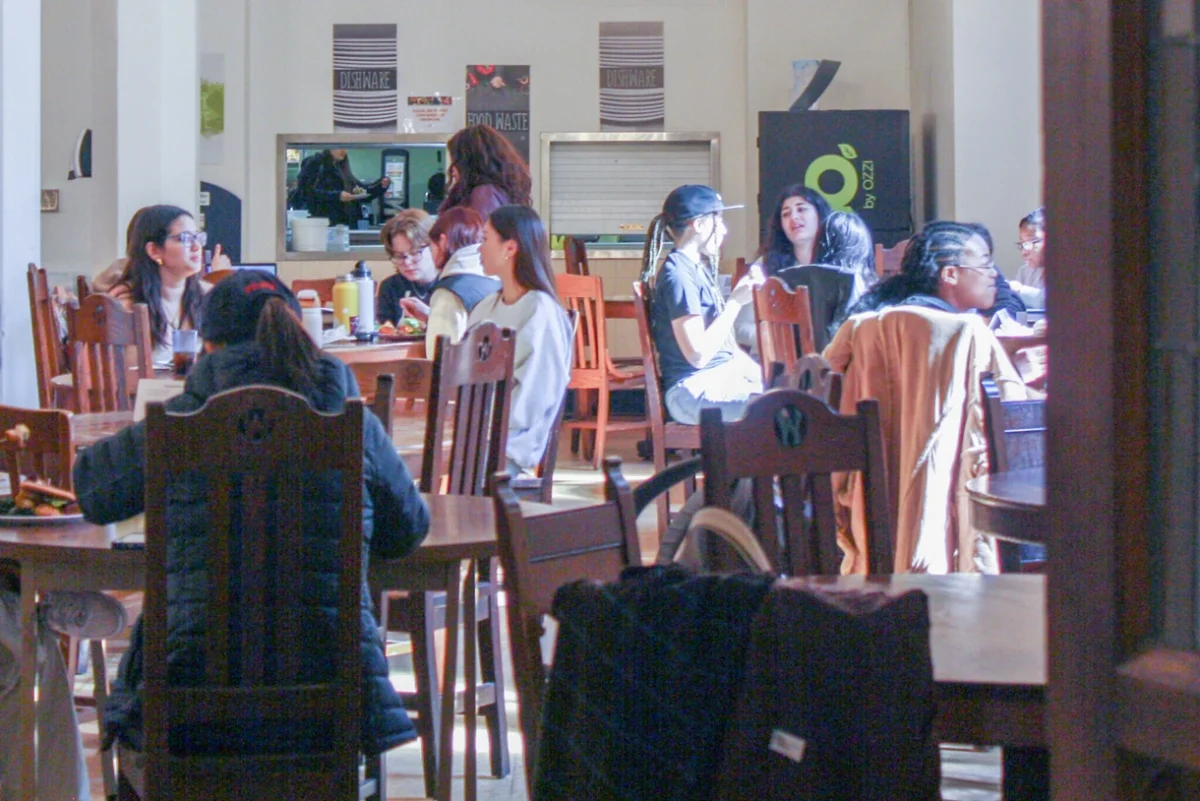By VICTORIA HILLS ’14
Co-Editor in Chief

Arts Editor
Silk Road. The Dread Pirate Roberts. A Vancouver ATM, WordPress, a newlywed couple with a thirst for adventure. The Winklevii.
No, these aren’t plot points in some bizarre novel. These are some of the big and small players in bitcoin, the cryptocurrency that’s rapidly invading every corner of the world, both real and virtual. But despite bitcoin’s skyrocketing growth, remarkably few people have a good grasp on what a bitcoin is, whether it’s safe to use and what role it will play in their futures.
Best described as libertarian, peer-to-peer digital currency, bitcoins allow individuals to make direct payments without the intermediation of any third-party authority, such as the state, PayPal or a bank. Bitcoin cryptography prevents double-spending—a plague for other digital currencies—and a network of private computers and their operators process payments and generate new bitcoins at an ever-decreasing rate. One bitcoin (BTC) is worth about $354 USD. Using bitcoins is simple: download a wallet to your smartphone or computer, then start making transactions.
Although bitcoin was launched in 2008, it gained international notoriety this past October when the FBI shut down Silk Road, an online black market where all transactions are conducted with bitcoins. A 29-year-old American, Ross Ulbricht, was arrested under suspicion of being the Dread Pirate Roberts, the website’s operator. Regardless of whether Ulbricht headed Silk Road, bitcoins allowed him to amass an astonishing $80 million fortune in less than two years, and it was partially due to bitcoins’ virtual anonymity that it took so long for the Feds to quash him.
Bitcoins retain some of the taint of their extensive involvement in Silk Road, which has already been resurrected online and, in the true spirit of the “The Princess Bride,” has found a new Dread Pirate Roberts to man its helm. But, like most forms of payment, bitcoins are only as illicit as the use to which they’re put.
WordPress, OkCupid and other major businesses now deal in bitcoins, and several organizations, including WikiLeaks, accept bitcoin donations. Beginning in July, a newlywed couple from Utah proved that they could spend 100 days traveling the world living off nothing but bitcoins. Their experiences varied—in Singapore they only found three restaurants that accepted bitcoins, while Berlin boasts a wealth of bitcoin-savvy businesses—but they never failed to find lodging, food and supplies that could be purchased with the currency.
Without a doubt, bitcoin is becoming increasingly mainstream for a variety of reasons. Travelers revel in the security of knowing that a digital wallet can’t be stolen like a real wallet. Merchants are incentivized to accept bitcoins because transaction rates are a small fraction of what banks charge. Bitcoin provides anonymity far beyond the degree offered by banks or credit card companies. Speculators view bitcoins as a virtual goldmine, although their reckless investing has had some serious repercussions.
If you’re wondering whether bitcoin is safe, the answer is a bit tricky. While you don’t need to worry about online thieves snatching away your digital ones and zeroes, you may still see your money vanish before your eyes.
At the beginning of 2013, BTC was valued at $13 USD. By April it had reached a high of $266, but in the same month its value plummeted to around $50. The Silk Road seizure caused a flash-crash, but Nov. 9 saw a record high of $379.89. BTC is freakishly, unpredictably temperamental, and despite its steady upward increase in value since 2008, it’s not very trustworthy as a singular, day-to-day source of cash.
In the meantime, it looks like bitcoin is here to stay. The first bitcoin ATM was unveiled in Vancouver, Canada on Oct. 29, and processed 81 transactions its first day. A full third of those 81 transactions were made by first-time bitcoin users.
If the currency stabilizes, the convenience and privacy that bitcoin offers over other current modes of payment are sure to win a plethora of users. If you don’t use bitcoin yet, the option is certainly open to you. Chances are you’ll start to see friends and family paying for things out of their digital bitcoin wallets.
Victoria is a senior studying biology and history. Follow her on Twitter @HillsVictoriaM.




